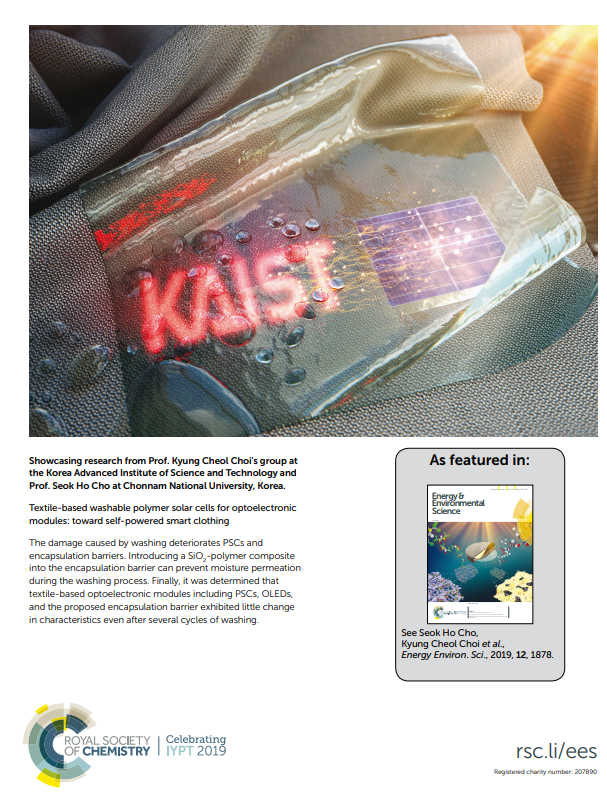
Journal
 > Publication > Journal
> Publication > Journal
[International Journal] [Back Cover] Textile-based washable polymer solar cells for optoelectronic modules: Toward self-powered smart clothing
Hit : 842
Eun Gyo Jeong+, Yongmin Jeon+, Seok Ho Cho*, and Kyung Cheol Choi*
Energy & Environmental Science, January , 2019
Published
vol , no , pp
Abstract
Because of their advantages, polymer solar cells (PSCs) are one of the most promising candidates for the next generation power source of various wearable and optoelectronic applications. However, the damage caused by washing, which is essential for wearable applications, deteriorates the characteristics of the device and conventional encapsulation barriers. This study developed an encapsulation barrier which prevented moisture permeability even during the washing process, by introducing a SiO2–polymer composite capping layer. The chemical stability imparted by a reaction between SiO2 and Al2O3 can prevent the phase transitions that are the cause of degradation. The proposed encapsulation barrier preserves its physical and chemical properties, such as thickness, roughness, and permeability, after washing. Also, we proposed a real textile-based PSC, which is a profitable wearable device, since it uses the textile itself as a platform. This means that the PSCs are very flexible and can be designed to match energy consumption by controlling the power area. Finally, it was determined that textile-based optoelectronic modules including PSCs, organic light emitting diodes, and the proposed encapsulation barrier exhibited little change in characteristics even after 20 washings with 10 minutes cycles. In addition, the encapsulated device operated stably with a low curvature radius (3 mm) and boasted high reliability. It exhibited no deterioration in properties over 30 days even after being subjected to both bending stress and washing. This work suggests an important direction for the practical realization of wearable optoelectronic devices on real textiles.














